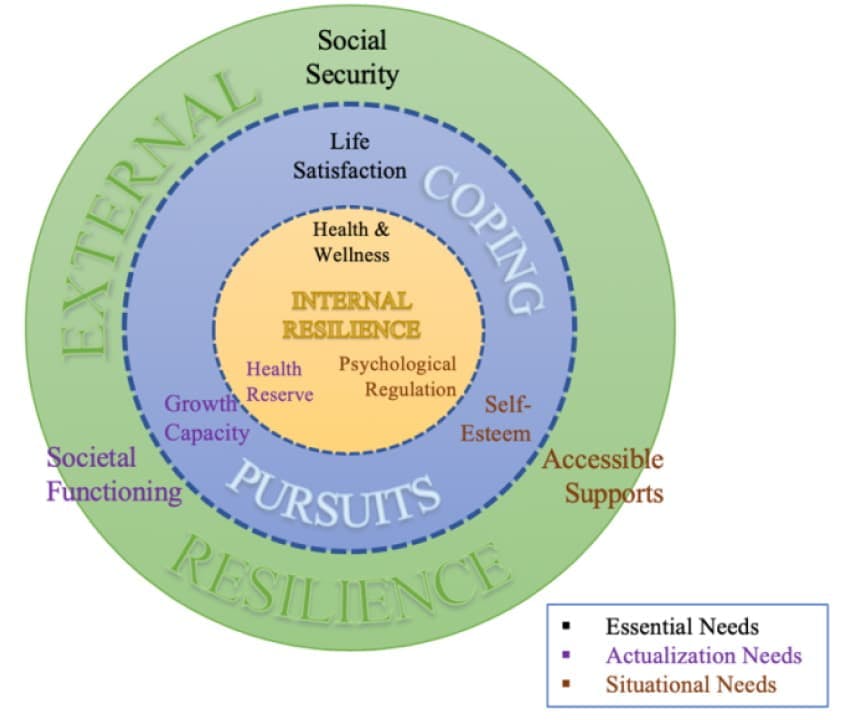Research and Publications
Model Development
The Multi-System Model of Resilience (MSMR) conceptualizes resilience as a multidimensional capacity to respond to challenges across different domains. The MSMR was first introduced as a theoretical, multi-dimensional model in response to the limitations in existing literature regarding the ambiguities in defining resilience and the lack of multi-dimensionality in understanding resilience (Liu, Reed, & Girard, 2017).
Following the publication, our team of researchers have developed an accompanying self-reported inventory (MSMR-Inventory) to measure the theoretical model. The resulting MSMR-I is a 27-items, self-reported scale scored on a 4-point Likert-type measure.
We have conducted studies to validate and examine the factor structure and psychometric properties of MSMR-I in several populations. Psychometric properties of the MSMR-I and its associated subscales showed good reliability, and construct validity and criterion validity support its three-systems factor structure and relationship to functional outcomes of depression, anxiety, and stress.
The MSMR-I consists of three subscales: internal resilience, coping pursuits, and external resilience. Each subscale contains 9 self-reported items, and can be used and interpreted independently of the other subscales. The MSMR-I is unique in that it can be used as an assessment tool to best capture where barriers to one’s resilience may lie. For details on how to use and interpret the MSMR-I, please contact us for access to user manual.
Ongoing Projects
The following projects are using the MSMR and MSMR-I in the capacity to assess and track resilience over time:
Project PROTECH: Pandemic Rapid-response Optimization To Enhance Community-resilience and Health
Linking Hearts: Advancing Mental Health Care of University Students, a Canada-China international collaborative implementation project
Women Empowerment – Caregiver Acceptance & Resilience E-Learning: Web-based Acceptance and Commitment Therapy for Stress Reduction Among Migrant Live-in Caregivers (WE-CARE).
CHAMPS in Action: Advancing Community Health through Evidence-Based HIV Stigma Interventions

